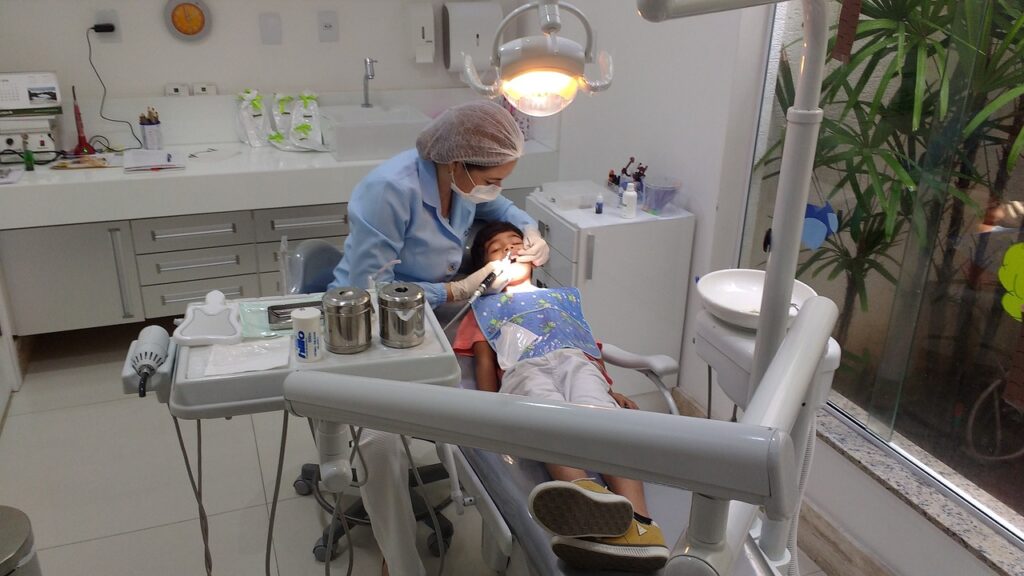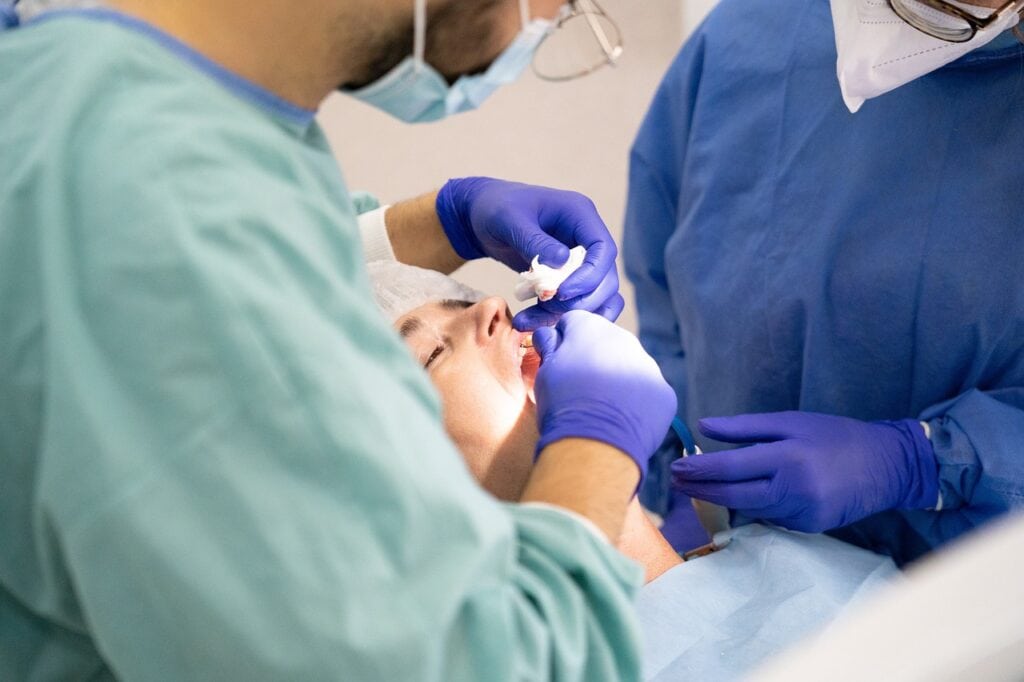Signs You Should See a Dentist Immediately
Discovering the signs you should see a dentist immediately can be the key to maintaining not just your oral health but your overall well-being. Many people wait too long to address dental issues, which can lead to more serious problems down the line. Recognising early symptoms such as persistent toothache or swollen gums can save you a lot of trouble and discomfort. This article aims to guide you through the various signals your body might send to alert you to potential dental concerns. Our goal is to keep you informed and prepared to take action for your dental health.

When to Visit a Dentist: Clear Signs Not to Ignore
If you’re experiencing persistent dental pain, swelling, or other unusual symptoms, it’s important not to ignore these signs. Promptly visiting a dentist in Perth can prevent these issues from worsening and help maintain your overall oral health.
Persistent Toothache or Severe Pain
If you have a toothache that won’t go away or severe pain, it’s time to visit the dentist. This can be a sign of a cavity or an infection deep within a tooth, which can get worse without treatment. The pain may also be caused by a problematic wisdom tooth; in this case you may require wisdom teeth extraction. Don’t ignore the pain; a dentist can provide relief and prevent further damage to your teeth.
Swollen Jaw or Mouth
Swelling in your jaw or mouth can indicate a serious infection, such as an abscess, which might not just go away on its own. If you notice swelling, especially if it’s painful or extends to your neck, see your dentist immediately to get it checked out.
Bleeding Gums
Gums that bleed easily, especially during brushing or flossing, might be a sign of gum disease. Early treatment of gum disease can help reverse the damage and improve your oral health, so it’s important to consult a dentist in South Perth if you notice this symptom.
Loose Teeth
Adult teeth should never feel loose. If you notice any movement in your teeth, it could be a sign of injury or a disease affecting the bones and tissues that hold your teeth in place. A dentist can determine the cause and suggest treatments to save your teeth.
Sensitivity to Hot and Cold
If you wince when your teeth are exposed to hot or cold temperatures, you might have sensitive teeth. The cause can be anything from tooth decay to worn tooth enamel or exposed tooth roots. A dentist can offer solutions to reduce sensitivity and protect your teeth.
Mouth Sores That Don’t Heal
Sores in or around your mouth that don’t go away after a couple of weeks should be examined by a dentist. They can be signs of infection, viruses, or even oral cancer. Early detection and treatment are critical for these conditions.
Numbness
Numbness in any part of your mouth, especially if it appears suddenly, should not be ignored. This could be a sign of nerve damage or other serious conditions. Seeing a dentist as soon as you notice numbness can help pinpoint the cause and get the right treatment.
Constant Bad Taste or Persistent Bad Breath
Experiencing a constant bad taste or bad breath that doesn’t go away with brushing and flossing can be indicative of dental issues like infections. A dentist can help identify and treat the underlying causes to refresh your breath and improve your oral hygiene.
Pus or Signs of Infection
The presence of pus in your mouth is a sure sign of an infection. If not treated promptly, infections can lead to more serious health issues. It’s crucial to see an emergency dentist Perth who can provide the necessary antibiotic treatment and drain the infection if needed.
Injury to Teeth or Gums
Any injury to your teeth or gums, whether from an accident or biting down on something hard, should be considered a dental emergency. Visit a dentist as soon as possible to prevent complications like broken teeth or infections.
Recognising these signs and acting quickly can keep minor issues from becoming major ones. Regular visits to your dentist are the best prevention, but when these symptoms appear, don’t delay in seeking professional help.
Routine Check-ups: More Than Just Teeth Cleaning
Regular dental check-ups do a lot more than just keep your teeth shiny. They are crucial for maintaining overall oral health and catching potential problems early.
Early Detection of Issues: Your dentist checks for early signs of tooth decay, gum disease, and other potential problems that might not yet be symptomatic.
Preventive Care: These visits are crucial for catching conditions like gum disease and cavities early, which allows for simpler, more preserving treatments and avoids more complex procedures.
Beyond Teeth and Gums: Dentists can also detect signs of broader health issues, such as diabetes or vitamin deficiencies, from the condition of your gums and teeth.
Long-Term Health Benefits: Regular check-ups not only keep your smile bright but also play a key role in your overall health by detecting potential problems before they escalate.

Children and Dental Health: Early Signs of Trouble
It’s important for parents to keep a close eye on their children’s dental health. Spotting problems early can make a big difference in treatment and prevent bigger issues later on. Here are some signs to watch out for that might mean it’s time to take your child to a paediatric dentist:
Persistent Toothaches: If your child often complains about tooth pain or if the pain seems to come and go, it’s a good idea to check in with your dentist. Toothaches can be a sign of cavities or other dental issues.
Sensitive Teeth: Does your child shy away from hot or cold foods and drinks? Sensitivity can signal that something is wrong, like cavities or worn-out enamel.
Red, Swollen, or Bleeding Gums: If you notice your child’s gums bleeding when they brush their teeth or if they look red and swollen, this could be a sign of gum disease. Catching and treating gum problems early is crucial.
Bad Breath: If your child’s breath is consistently bad even after brushing, this might be a sign of a dental problem. It’s worth getting it checked out by a dentist.
Loose Teeth: In children, it’s normal for baby teeth to become loose and fall out. However, if an adult tooth is loose, it’s important to see a dentist.
Changes in the Way Teeth Fit Together: If your child mentions that their bite feels different or if you notice a change in the way their teeth fit together when they bite, it could be a sign to visit your dentist.
Avoiding Eating: If your child is avoiding certain foods or seems to be chewing awkwardly, this might be because of a dental issue causing them discomfort.
White Spots on Teeth: White spots on teeth can be an early sign of dental decay. Seeing a dentist as soon as you spot these can help prevent cavities from forming.
If you see any of these signs, don’t wait. Book an appointment with your dentist. Regular check-ups can also help catch these issues before they become serious, ensuring your child keeps a healthy, happy smile.
Overcoming Fear: Tips for a Stress-Free Dental Visit
Feeling nervous about going to the dentist is common, but there are ways to make your visit easier and less stressful. Here are some simple tips to help you manage dental anxiety and have a more relaxed experience:
Talk About Your Fears: Start by sharing your concerns with your dentist and the dental team. They’re trained to help anxious patients and can adjust the treatment to make you more comfortable.
Ask for Breaks: Remember, you can ask for a break at any time during your dental appointment. If you feel overwhelmed, a short pause can help.
Bring a Friend: Sometimes, just having someone you trust with you can make a big difference. You can ask a friend or a family member to come along for support.
Listen to Music: Bringing headphones and listening to your favourite music or podcasts during the procedure can help distract you and make the time pass more quickly.
Practice Deep Breathing: Deep breathing exercises can help calm your nerves. To relax, try taking slow, deep breaths in through your nose and out through your mouth.
Schedule Wisely: Choose a time for your dental appointment when you’re less likely to be rushed or under pressure. A less hectic schedule can help reduce your stress.
Understand What to Expect: Sometimes, fear comes from not knowing what will happen. Ask your dentist to explain the steps of the procedure before starting. Knowing what to expect can ease your mind.
Consider Sedation Options: If your anxiety is severe, talk to your dentist about sedation options. These can range from mild sedatives to help you relax to more complete sedation techniques, depending on your needs.
Frequently Asked Questions About Dental Visits
Going to the dentist can bring up a lot of questions, especially if it’s been a while since your last visit or if you’re trying to manage dental care costs. Here are answers to some common questions that might help you feel more at ease about your next dental appointment:
How often should I visit the dentist? It’s best to see your dentist every six months for a routine check-up and cleaning. However, your dentist might suggest more frequent visits if you have specific dental issues that need closer monitoring.
What happens during a routine dental check-up? At a typical check-up, your dentist will examine your teeth, gums, and mouth for any signs of decay, gum disease, or other problems. They’ll also clean your teeth, removing any plaque or tartar build-up and polish your teeth to keep them bright.
Is going to the dentist expensive? The cost of dental visits can vary depending on what you need. Many basic services like check-ups and cleanings are quite affordable, and if you have dental insurance, it might cover most of the cost. If you’re worried about expenses, talk to your dentist’s office about payment plans or services that fit your budget.
What should I do if I have a toothache? If you have a toothache, don’t wait for your regular check-up. Call your dentist and make an appointment as soon as possible. A toothache could be a sign of a cavity or infection that needs immediate attention.
What are signs I might need to see a dentist immediately? You should see a dentist right away if you have severe pain, swelling, gums that bleed easily, or any injury to your teeth or mouth. These can be signs of serious issues that shouldn’t be ignored.
Can I go to the dentist if I’m scared? Absolutely. Dental anxiety is common, and dentists are well-equipped to help you manage your fears. Let your dentist know about your anxiety. They can explain everything they’re doing and can offer sedation options to make your visit more comfortable.
What if I haven’t been to the dentist in years? It’s never too late to take care of your dental health. Dentists understand that life gets busy, and they’re just happy to see you when you’re ready to come in. Don’t worry about being judged—just taking the step to book an appointment is a big move toward better dental health.
If you have more questions, your dentist is the best person to ask. They’re there to help and provide you with the care you need so you can keep smiling with confidence.

Your Next Steps to a Healthier Smile
Booking a regular check-up at Acts Dental is easy and the first step towards ensuring your teeth are healthy and bright. Regular dental visits help prevent issues before they start and keep minor problems from becoming bigger ones. Plus, there’s nothing like that fresh, clean feeling after a professional clean!
Acts Dental is proud to be NIB preferred provider, Bupa preferred provider, Medibank preferred provider, HCF preferred provider, and HBF preferred provider.
Give us a call (08) 9474 5083 or visit our website to schedule your appointment. Let us help you maintain a healthy, confident smile.


